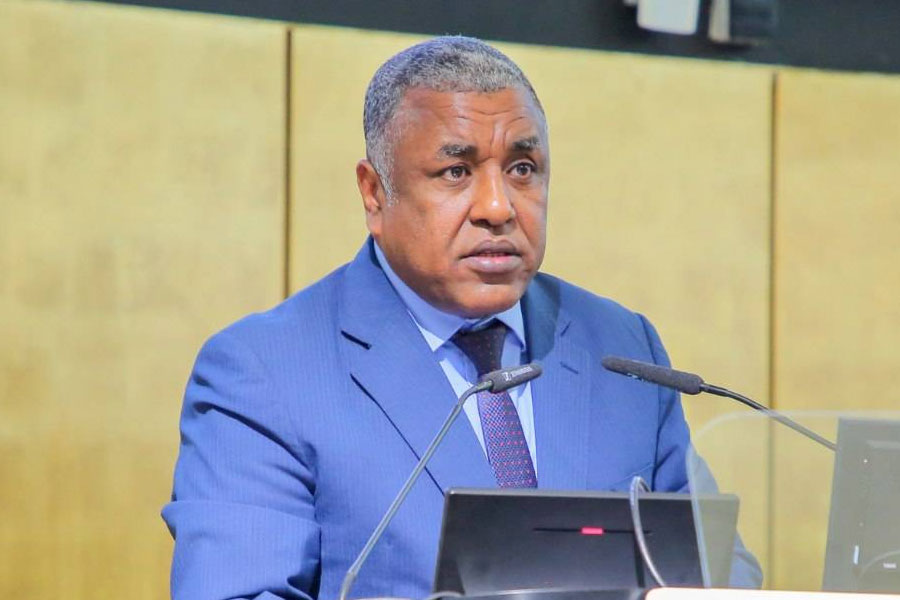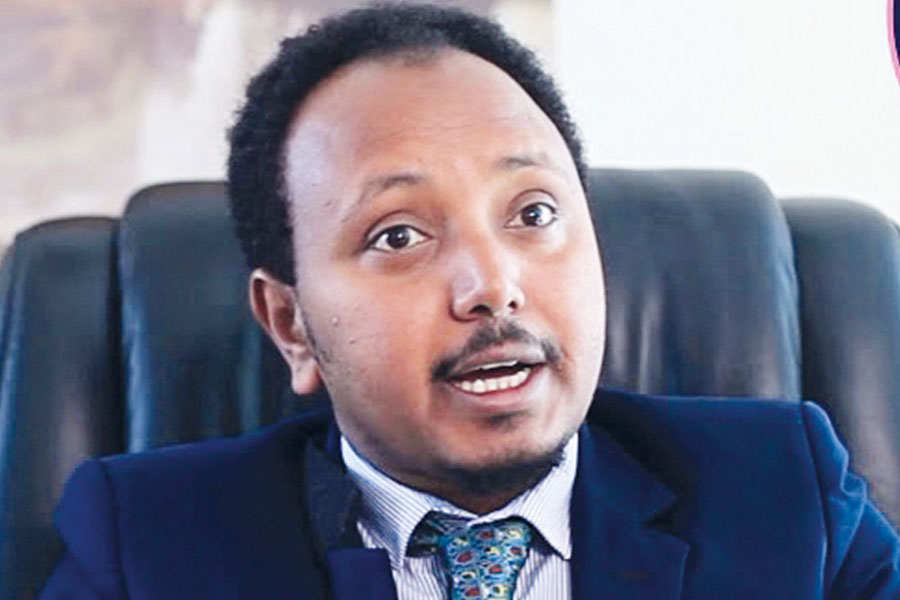
Viewpoints | Jun 07,2020
Jun 19 , 2021
By HAWI DADHI
Developers producing content for the visually impaired will be exempted from criminal offences for republishing copyrighted materials when the copyright law is amended, for the second time since its passing in 2004.
The amendment will permit published materials to be accessible in formats the visually impaired can use, such as braille and audio, without the direct consent of the copyright owner.
The amendment is introduced to comply with the Marrakesh Treaty, which Ethiopia agreed to adopt last year. Sixty-five countries signed the Treaty in 2013, seen as a milestone to ensure the rights of the visually impaired and disabled. Ethiopian authorities accepted the treaty in November 2020, six years after parliament passed copyright legislation, hoping to implement it in February 2021. It commits signatories to list limitations and exceptions to copyright laws to make it easier for the visually impaired to access printed materials in a suitable format.
The Ethiopian Intellectual Property Office (EIPO), a federal agency tasked with enforcing intellectual property, trademark and copyright laws, has identified the absence of clauses that recognise the rights of the visually impaired. Copyright holders of books or resource reproduced in different formats must grant their consent. This will change soon with the visually impaired, granted by law to use copyrighted materials. The amended law will compel material providers such as libraries to avail books and other materials in braille and audio.
What measures will be taken if the requirements are not met is yet to be determined, according to Nassir Nuru, director for copyright and community knowledge protection and development at the EIPO.
Less than 10pc of published books worldwide are accessible for the visually impaired, according to the World Blind Union, a global organisation representing the estimated quarter of a billion blind and visually impaired people in the world. Although there has not been much study in Ethiopia, the amount of accessible materials is almost nonexistent, says Wesen Alemu, president of the Ethiopian National Association of the Blind. The World Bank and the World Health Organisation (WHO) estimate that 17.5pc of the Ethiopian population live with a disability; about five million are blind or partially sighted.
If the Marrakesh Treaty is held up, it will serve not only the blind but also others in society that are print disabled, such as those with learning disabilities and persons with no hands, according to Wesen.
The reproduction of copyrighted materials has been limited due to the absence of a legal framework that allows for such without the consent of the copyright holders.
"As different sectors expand, and society's awareness increases, the scope of copyright laws has to improve," said Nassir.
The association leaders would want to see exemption to extend to computer programmes, demanding that they incorporate functionality to allow the blind access to software. Additionally, they hope to see government issued documents availed in formats suitable to the blind and visually impaired.
Officials at the EIPO have identified others issues for amendment, such as ensuring the rights of internet content producers, acknowledging resale rights, and regulating the duplication and distribution of on-demand satellite transmission.
PUBLISHED ON
Jun 19,2021 [ VOL
22 , NO
1103]

Viewpoints | Jun 07,2020

Viewpoints | May 28,2022

Viewpoints | Dec 07,2019

Fortune News | Nov 09,2019

Fortune News | Jul 17,2022

Radar | Jun 15,2025

Fortune News | Oct 22,2022

Radar | Jan 03,2021

Fortune News | Aug 22,2020

Fortune News | Jan 21,2023

Dec 22 , 2024 . By TIZITA SHEWAFERAW
Charged with transforming colossal state-owned enterprises into modern and competitiv...

Aug 18 , 2024 . By AKSAH ITALO
Although predictable Yonas Zerihun's job in the ride-hailing service is not immune to...

Jul 28 , 2024 . By TIZITA SHEWAFERAW
Unhabitual, perhaps too many, Samuel Gebreyohannes, 38, used to occasionally enjoy a couple of beers at breakfast. However, he recently swit...

Jul 13 , 2024 . By AKSAH ITALO
Investors who rely on tractors, trucks, and field vehicles for commuting, transporting commodities, and f...

Jun 28 , 2025
Meseret Damtie, the assertive auditor general, has never been shy about naming names...

Jun 21 , 2025
A well-worn adage says, “Budget is not destiny, but it is direction.” Examining t...

Jun 14 , 2025
Yet again, the Horn of Africa is bracing for trouble. A region already frayed by wars...

Jun 7 , 2025
Few promises shine brighter in Addis Abeba than the pledge of a roof for every family...